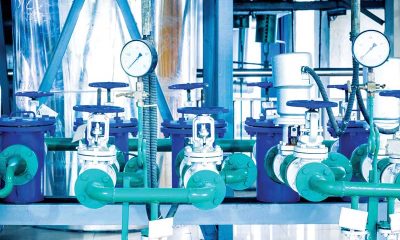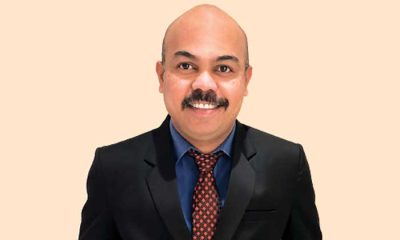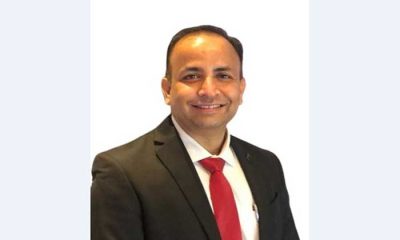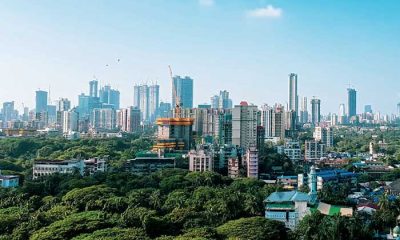Technology
A Cheaper & Safer Alternative
Published
6 years agoon
By
admin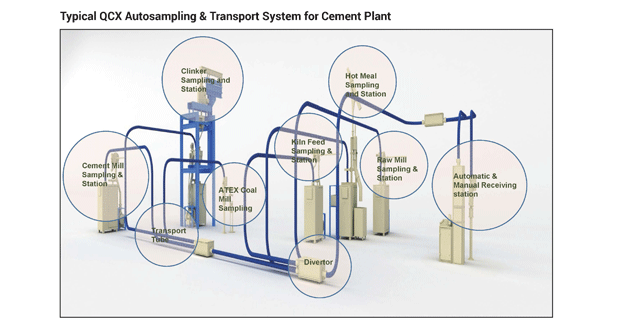
FLSmidth offers a range of simpler equipment configurations to suit specific needs and budgets.
All material in a process flow must have an equal probability of being sampled. This is a basic principle in representative sampling, and should therefore always be seen as the ideal sampling concept.
There are no methods of analysis that can compensate for errors/bias in the sampling stages. Therefore, it is crucial to always ask yourself if the sampling method is adequate when investing in sophisticated analysis technology.
A run of mine/quarry ore stream – after primary/secondary crushing – on a conveyor belt will typically show high inhomogeneity in all three dimensions: along the length of the conveyor (L), across the conveyor (W) and in the depth of the material layer (D). In addition, particle size segregation may be distinct in the W and D dimensions. This puts high demands on the sampling, which is complex and will require multi-stage sampling towers with sample cutters, splitters, pulverize and sometimes drying equipment.Representative sampling
In FLSmidth, we have a pragmatic approach to sampler design and we deliver well performing state-of-the-art sampling solutions for a range of different process applications. We do this with competent sampling theory combined with solid practical experience from different industries. Our sampling solutions are often fundamental for added services, such as fully automatic sample preparation & analysis as well as software solutions for process optimization, both regarding to quality and operation. Impact Areas
Many cement plant laboratories are faced with increasingly higher requirements to sample throughput, complexity of analysis and quality of analysis. This is among other things a result of environmental requirements placing stricter control on cement production, both in terms of pollution and energy consumption. Sampling: Inconsistency and inaccurate analysis results contribute to laboratory errors, creating process fluctuations and disrupting productivity, equipment lifetime and especially product quality.
In addition to this, the current economic climate demands 24/7/365 cement plant operation, with as little staffing as possible. Intelligent Cement Plant
- Lowest energy usage
- Lowest heat consumption
- Optimal production
- Lowest O&M Cost
- Delivering value to the society
For exceptional quality and process control at all stages of cement production, the FLSmidth QCX system:
- Automates sampling, sampling preparation and analysis
- Provides safe, fast and reliable information
- Ensuring correct, safe sample taking and preparation, all equipment is
- Compliant with CE (H&S)
- Integrates all cement quality-control activities in a single system
- Incorporates in-depth understanding of the production process
- Allows for any degree of cement production in the software design
Alternate ideology for radioactive online analysis
Prompt-gamma neutron activation analysis (PGNAA) is a very widely applicable technique for determining the presence and amount of elements in raw materials for cement and mining. Every PGNAA has neutron source that emits harmful radiation, which is risk to life. Having on line analysers in plant appears below challenges like:
- Heavy radiation emission of source is matter of hazard in site areas which require high safety and security to maintain safe zone
- Heavy maintenance cost due to in case of
- natural source the half-life of source is 2.6 years and in every 7.5 years, entire source needs replacement. In case of Neutron generators, limited life of neutron tubes need replacement in every 2-3 years
- Maintaining and operating radioactive sources demands for frequent statutory formalities
Thought process
Auto sample transport, which will be more economical, accurate, safer and reliable way of analysing samples. Through auto sample transport system raw meal material, directly reach to receiving station where it proceed for further course of action. Like sample weighing, sample preparation
and further to analysis system, which can be
further upgraded to additional analysers like particle size analyser for which sample can be taken from cement mill.
Auto sample transport solution will exclude future requirement of online analyzers for cement plant in the raw mill.FLSmidth QCX
QCX Robolab are usually associated with large-scale robot-driven cells. However, we offer a range of simpler equipment configurations to suit specific needs and budgets.
Advantages as compared to manual sample preparation:
- Fast and consistent sample preparation improves cement quality
- Consistent quality reduces fuel consumption in preheater and kiln
- Saves the work of 1-2 persons per shift
- Fast turnaround time from sampling to analysis: 7-10 minutes
- Eliminates risk of repetitive strain injuries
- Eliminates human errors (one closed circuit)
- QCX/Manager Light: control and recipe management
- Standard reports and trends: 100 day log horizon
- QCX driver controls XRF: one interface to whole system
AUTHORS:
S. Sankaralingam and Abhishek Joshi, QCX Sales at FLSmidth.
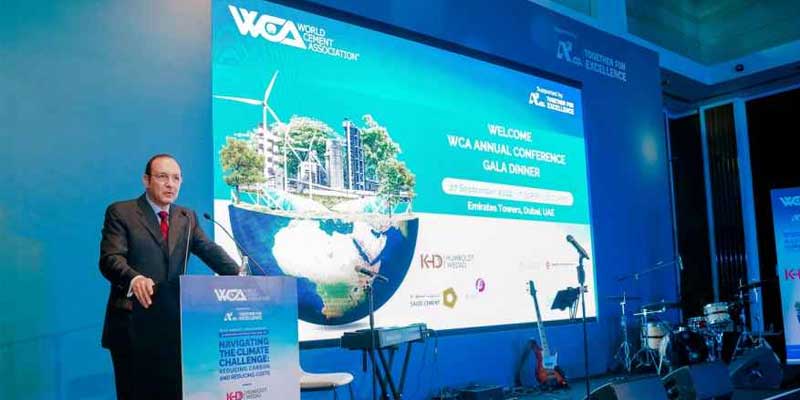
At the World Cement Association’s annual conference the WCA Director, Emir Adiguzel addressed the global cement industry to outline the challenges and opportunities facing the global cement industry.
The conference held in Nanjing, had industry leaders, innovators and stakeholders in attendance to discuss the future of cement production and sustainability. The WCAA director emphasised on the cement industry’s stern commitment to sustainability; spoke about the global cement demand and market dynamics, projecting a period of stagnation from 2024-2030 with growth expected only in the Middle east, India and Africa; about the challenges and opportunities in carbon capture technology hat show promise but will need further development and substantial investment as well as about the strategic initiatives and collaboration within the industry in improving sustainability and operational performance.
Adiguzel concluded his address by highlighting the crucial point where the global cement industry stands by saying “Collaboration within the World Cement Association is essential for sharing knowledge and aligning on long-term objectives. Ensuring the industry’s resilience and adaptation to evolving market dynamics is crucial for the survival of independent cement producers”.
Economy & Market
We are shaping the future of clean air
Published
3 months agoon
April 16, 2024By
admin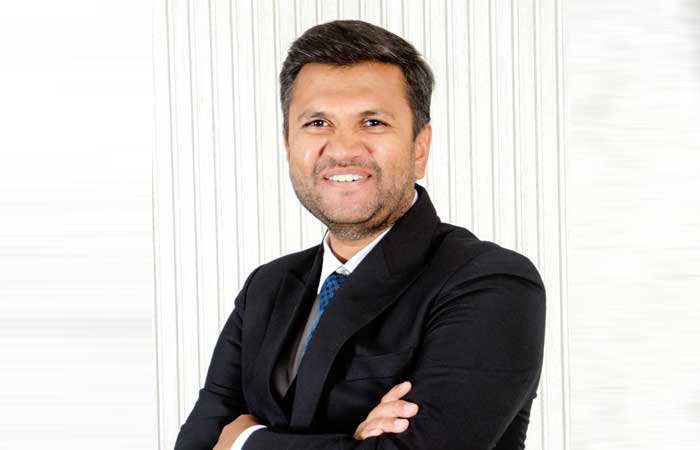
Monil Parikh, Managing Director, Techflow Enterprises Pvt Ltd, leads us to a better understanding of how cutting-edge designs and advanced technologies are revolutionising the process of filtration, driving efficiency and environmental responsibility within the cement sector.
Tell us about your air pollution control systems.
Techflow Enterprises, operating from our expansive 30,000 sq m facility, which is one of India’s largest, manufactures a comprehensive suite of air pollution control systems specifically designed for cement plants. Our solutions include:
Pulse Jet Bag Filters: Employing compressed air for efficient cleaning, these capture fine dust particles generated during grinding and packing. Techflow’s bag filters are designed to restrict the outlet emission up to 5mg/Nm3.
Electrostatic Precipitators (ESPs): Ideal for ultra-fine particulate matter in kiln exhaust gases, ESPs utilise an electric field for superior dust capture with 99.9 per cent capacity.
Centrifugal Fans: We offer various fans like induced draft (ID) fans for draft creation, process fans for dust-laden air transport, and kiln fans for high-temperature gas streams.
Techflow’s commitment to quality is evident in our proven track record. We are actively supplying solutions to leading cement players like Adani Cements, Ambuja and ACC Cement, Dalmia Bharat Cement and Wonder Cement. Our installations across India and Asia stand as a testament to our expertise in handling cement plant dust control challenges.
How do your products and systems integrate with cement plants?
Techflow’s air pollution control systems seamlessly integrate into your existing cement plant. Our pulse jet bag filters fit effortlessly downstream of grinding mills and packing stations, effectively capturing fine dust particles generated during these processes. Electrostatic Precipitators (ESPs) excel in kiln exit gas streams, working alongside existing cyclones to achieve ultra-fine particulate control, a critical step in maintaining clean air emissions.
Techflow’s comprehensive offering of centrifugal fans ensures a perfect fit for any application. Our ID fans seamlessly integrate into the kiln system, creating the necessary draft to pull exhaust gases through the air pollution control equipment. Process fans, strategically placed throughout the plant, efficiently convey dust-laden air from various generation points, like clinker coolers and raw material handling, towards the filtration units. This modular approach minimises disruption during installation and ensures optimal dust collection across your entire cement production process.
How do your innovative designs better the process of filtration at cement plants bringing efficiency to the process?
Techflow’s commitment to innovation translates to superior filtration efficiency and operational cost savings for cement plants. Our pulse jet bag filters incorporate features like:
- High-efficiency filter media: Designed for specific dust types, this media minimises pressure drop across the filter, reducing energy consumption.
- Improved flue gas entry design
- Low Pressure Cleaning Systems
- Optimised pulse cleaning systems: These systems efficiently dislodge dust cake buildup using compressed air, maximising filter media life, and minimising downtime.
Our ESPs utilise advanced electrode designs to enhance particle collection and reduce maintenance intervals. Furthermore, Techflow’s centrifugal fans are meticulously crafted for superior aerodynamic performance, leading to lower energy consumption and improved overall plant efficiency.
Techflow has developed a SMART-LINK automation module for better maintenance and real-time remote tracking of performance of each equipment. Cement plants equipped with Techflow’s systems experience reduced operational costs, minimised downtime and compliance with ever-evolving environmental regulations.
What is the key differentiator between traditional filters and modern filters?
Traditional bag filter systems often relied on manual cleaning methods, leading to inconsistent performance, increased downtime, and potential worker exposure to dust. Modern pulse jet bag filters, like those offered by Techflow, address these limitations.
Our systems leverage automated cleaning mechanisms, ensuring consistent filtration efficiency and minimal operator intervention. Additionally, advanced filter media materials in Techflow’s bag filters offer superior dust capture capabilities compared to traditional fabric filters.
This commitment to modern technology translates to a safer and more efficient and environmentally friendly dust control solution for cement plants.
Can your designs be customised as per the requirement of the customers?
At Techflow, we understand that every cement plant has unique dust control requirements. That is why we prioritise customisation across our entire product range:
Pulse Jet Bag Filters: Filter media type and micron rating based on dust properties, number of filter bags, and pulse cleaning system configuration like cycle time and pressure can all be adjusted to optimise performance for your specific dust and airflow. The system can be designed to achieve less than 5mg/Nm3 outlet emission standards as well.
- Electrostatic Precipitators (ESP): ESP design can be customised with features like the number of electrode rows, electrode spacing, and power input like voltage and current to achieve the desired dust collection efficiency for your specific outlet emission capacity less than 20mg/Nm3.
- Centrifugal Fans: Fan designs are tailored by adjusting factors like impeller diameter, blade design, and motor size to meet the specific pressure and flow requirements of various processes within a cement plant.
This focus on customisation ensures Techflow’s air pollution control systems perfectly match your cement plant’s needs, guaranteeing optimal dust capture and efficient operation.
What is the role of technology and automation in building filtration systems?
Techflow has designed a SMART-LINK System that can be integrated to our equipment which tracks and monitors performance of equipment in real time.
- Continuous diagnostics
- Condition-based maintenance
- Prevention of unplanned downtime
- Early problem detection using AI
- Data collection for process optimisation and efficiency maximisation
- Auto alert with warning driving timely human interactions
- Remote maintenance assistance by Techflow Team.
What are the major challenges in the filtration process and your system integration at cement plants?
The cement industry’s focus on sustainability, higher production and diverse fuel sources creates filtration hurdles. Adapting to changing dust properties, handling increased dust loads, and integrating seamlessly within space constraints are key challenges.
Techflow tackles these issues through advanced design techniques, exploration of innovative filter media, and modular system design. This ensures our filtration systems remain adaptable, efficient and seamlessly integrated within your cement plant, empowering your success.
How do you plan to further better your products and bring innovation in the future?
At Techflow, we are not just building filtration systems, we are shaping the future of clean air in the Indian cement industry. After successful expansion of the manufacturing facility in 2023, now it is time to improve designs and process optimisation. The future holds exciting possibilities: next-generation filter media with self-cleaning properties and
extended lifespans, minimising maintenance and maximising efficiency.
Techflow’s legendary after-sales support is about to get even better. We are expanding our global service network to provide you with 24/7 access to a team of India’s most experienced filtration specialists, ensuring your system operates flawlessly throughout its lifecycle.
Together, we will lead the way towards a sustainable future, paving the path for a greener tomorrow with green cement.
- –Kanika Mathur
Economy & Market
Digitalisation is changing the logistics landscape
Published
3 months agoon
April 16, 2024By
admin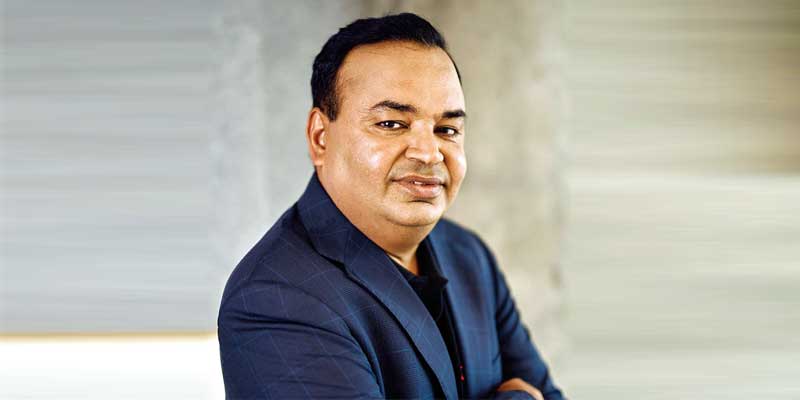
Haresh Calcuttawala, CEO and Co-Founder, Trezix, explains how their platform streamlines export processes, optimises logistics operations, and addresses the challenges faced by the cement industry.
How does your platform help in the compliance of cement exports?
The Trezix platform helps with the end-to-end processes for exporters, ensuring complete visibility of these processes focusing on shipments, documents, compliances, etc. The platform is also integrated with various stakeholders’ part of the export process including integration with Unified Logistics Integration Platform (ULIP) by the Government of India.
What is the impact of your systems on the cost and productivity of a cement plant?
The Trezix platform helps to optimise the turnaround time, visibility of shipment and improving efficiencies, which results in optimisation in logistics cost and improvement in working capital.
What are the major challenges in logistics and how can that be resolved?
A major challenge in the cement industry is the logistics cost and time for delivery. This can only be resolved with faster turnaround time, complete visibility of shipments, delivery lead time and process control to adhere to compliance.
Tell us your views on the change technology is bringing to logistics.
In the cement industry, so far technology has been more focused on internal process, and optimising demand and supply in the area of supply chain. However, now the focus has completely shifted to external stakeholders and their processes, and how have we integrated processes to further optimise the logistics execution.
Can your systems and solutions be customised based on customer requirements?
Every customer has some unique value proposition for their customer segment. Trezix has flexibility by way of configuration to adhere to industry needs and specific customer needs, keeping in mind the regulatory processes are not deviated to fulfil statutory requirements.
How do you foresee the face of logistics changing for the cement industry?
Digitalisation is one of the biggest waves you can see in the logistics space, which is changing the face of the industry. Digitalisation is changing the logistics landscape. Various concepts like Just In Time (JIT) to customer delivery are now a reality. Vehicle utilisation, fuel efficiency, delivery visibility, vehicle tracking through RFID, Fastag, FOIS (rail receipt tracking), container/cargo tracking across geography is now a reality.
- –Kanika Mathur

Indian cement industry applauds budget FY25 for focusing on decarbonisation

Towards an expanding horizon

Advancing Industrial Efficiency

We are excited about the future

Strong branding can create customer loyalty

Indian cement industry applauds budget FY25 for focusing on decarbonisation

Towards an expanding horizon

Advancing Industrial Efficiency

We are excited about the future






